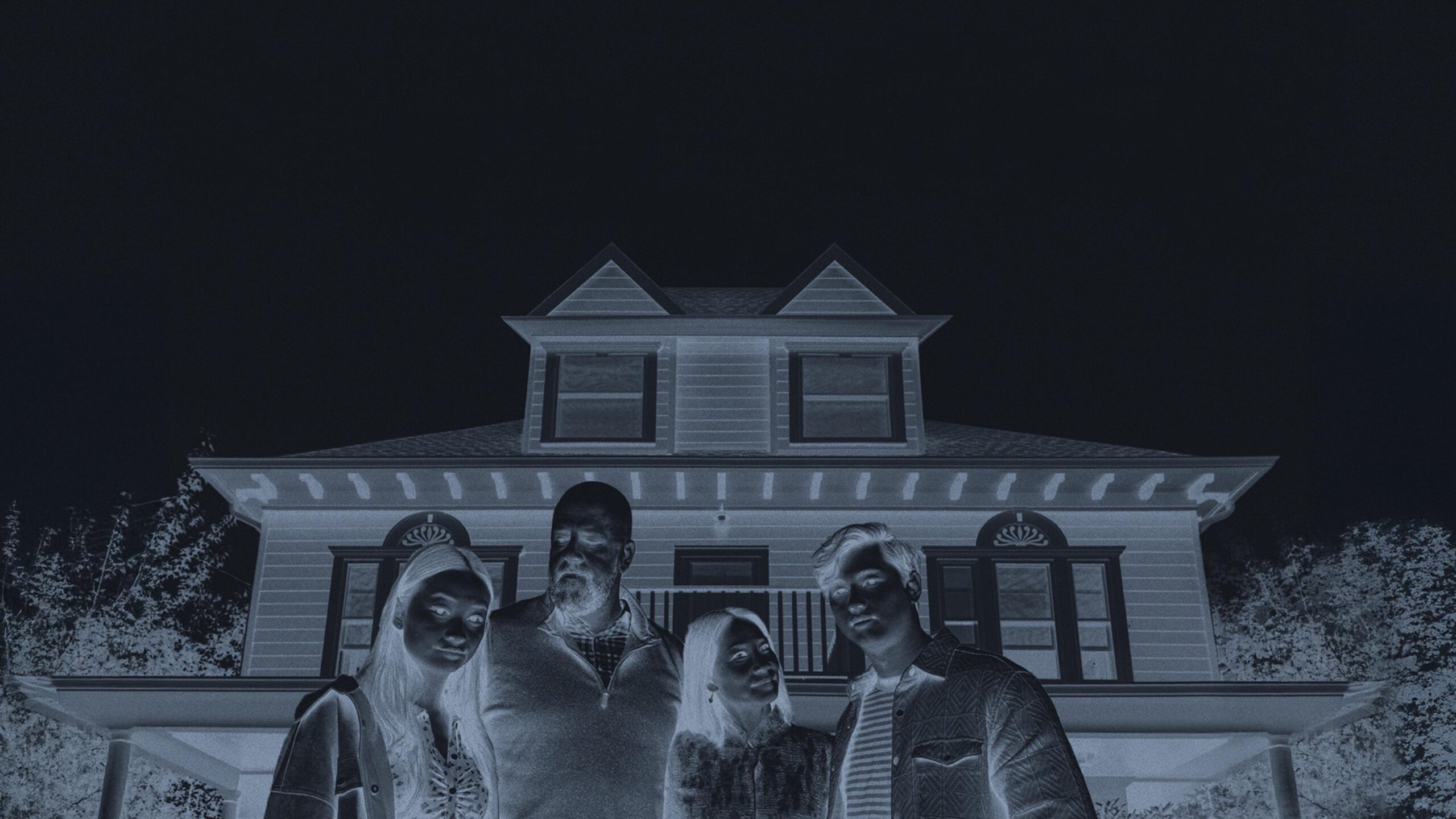Score: 3.5/5
From Ocean’s 11 to Magic Mike, American filmmaker Steven Soderbergh’s style remains dynamic and undefined, and his latest horror-drama flick Presence is his most technically experimental and challenging endeavour to date.
The film follows a family’s move into an idyllic suburban home. As they settle in, they begin to sense a supernatural presence living amongst them, though perhaps the family holds more secrets than the house itself.
Here’s the catch: the entire film is shot from the ghost’s first-person point-of-view. From start to finish the camera acts as the presence dwelling among the family, following them from room to room in various long takes. It’s a quiet film that distinguishes itself from both Soderbergh’s relatively approachable filmography and the horror genre overall.
First –and foremost, Presence isn’t exactly scary in a traditional sense, nor is the actual presence living in the house. If anything, the film leans toward cultivating sadness and general melancholy over horror.
The opening sequence begins with the presence waking up in a dark, empty house illuminated by a pale-blue morning glow. The camera pans around the empty rooms, gazing out the windows of its new forever home, forbidden to leave. It swiftly floats around, adjusting to its surroundings before settling in a closet.
Normally, the trope of monsters hiding in our closets is unnerving, but here it feels comparable to a frightened child hiding somewhere shielded from danger. Soderbergh adapts to the restricted style and manages to build a character for the ghost through simple directorial decisions. Everything from the camera turning away from uncomfortable conversations to approaching or leaving conversations between the family provide information into how the ghost responds to situations and feels about their new houseguests.
On top of this, there’s a lot to appreciate in the visual effects and sound department. The camera moves in front of various reflective surfaces and is entirely invisible. Shadows are erased, and the sound of the camera operator’s footsteps are hidden entirely. The lighting of the film is unremarkable and natural, a choice the story benefits from to make the haunted house feel more realistic and less fantastical.
At its core, Presence operates best as a family drama surrounding grief. We’re introduced to the Payne family: a detached, workaholic mother and nightmare boy-mom; an arrogant, star-athlete brother; a reclusive sister swallowing her own grief; and a desperate father doing his best to keep the unit together. The script is concise and introduces all necessary details for stakes to be felt over the Payne family’s gradual undoing.
Although the dialogue is clunky at times, the awkwardness never stays long enough to take viewers out of the story. Additionally, the performances are overall solid for what the actors are given to work with. Everything from passive-aggressive remarks to fights at the dinner table are visceral and establish convincing stakes over the fate that awaits them.
There’s a lot of respect warranted to filmmakers who fully commit to an experimental vision such as this, even if it doesn’t pay off all the time. The scenes are done in long takes without cuts, which can aid the natural immersion but make it easy to forget the camera is a character itself, detracting from the gimmick’s effectiveness at times.
Horror cinema is no stranger to exploring grief as a core theme, but Presence approaches it from a different angle, literally.
Grief is something we seek to have recognized and validated. It’s the ghost in our lives we’re told to overcome with time, even when time may be what allows it to chew away at us. Sometimes we need to believe in this ghost to break free from it, and to have others believe that what we feel is real and seen.
Much like 2024’s Longlegs, also produced by NEON, the film’s horror level does not live up to its marketing, perhaps hurting the film in areas more than it should for audiences. That said, this makes it exciting, as Presence is, like many great films, unmarketable. It’s a deeply intimate portrait of grief that deconstructs horror conventions typically used to generate fear. When grief becomes a ghost in our lives it’s perhaps more frightening to be isolated from others and not feel seen in our grieving.
All this to say that Presence is a concise, effective blend of family drama and the haunted house subgenre that could have very easily fallen to the wayside with other horror flicks jumping on the grief think-piece bandwagon. While it’s not guaranteed to hit the mark for all viewers, it’s bound to challenge how we see the camera as a narrator and unnerve audiences in unsuspecting ways.

